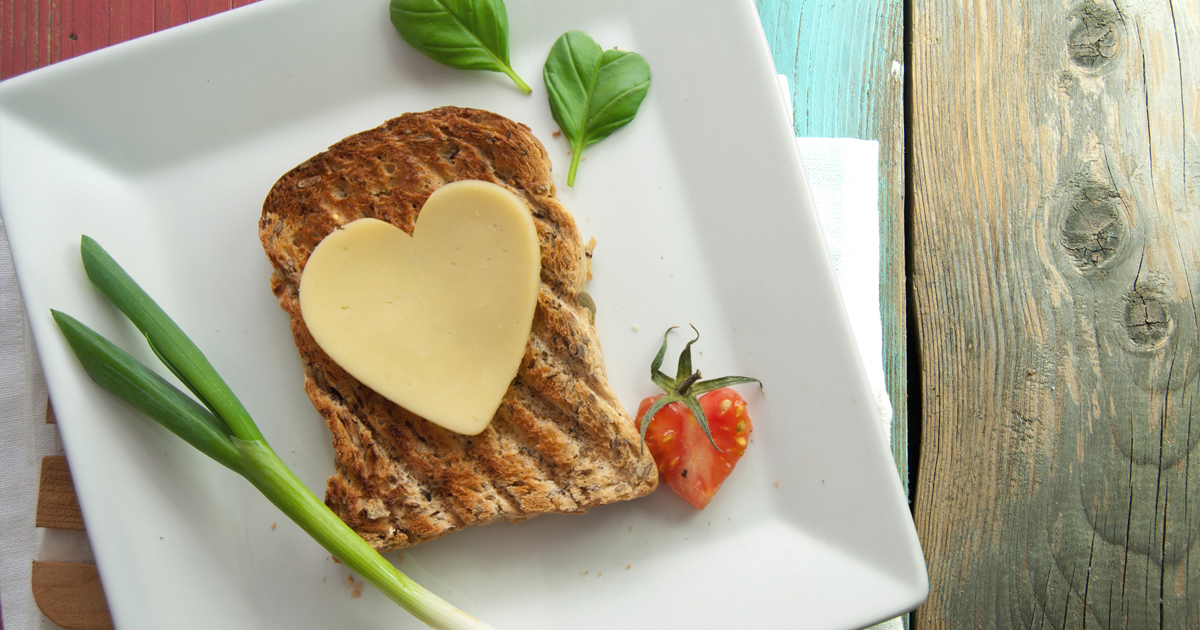
Your body needs fat to function. Some fats, though, are better than others. Find out what’s good and downright bad for you with our fats guide…
Fat has become a dirty word. Nobody wants to be overweight, because we know it’s a health hazard. We cut fat off meat, try to resist the doughnuts and skimp on cheese. We buy low-fat or fat-free and are always looking for new diets that will keep the bad stuff out of our bodies.The other reason we worry about fat, is cholesterol. Your liver and intestines make about 80 per cent of the cholesterol you need to stay healthy. The rest comes from food. But your body also converts bad kinds of fat into cholesterol. High levels of low-density lipoproteins (LDL), sometimes called “bad” cholesterol, can clog your arteries and lead to heart disease.
Even so, we need fat in moderation. It gives energy and transports fat-soluble vitamins (A, D, E and K) through the bloodstream. It helps build myelin, a fatty material around nerve cells, so that they can send electrical messages. Your brain is full of essential fats as well.

SO WHAT TO EAT AND WHAT TO AVOID?
Poly-unsaturated fats
An essential part of your diet is poly-unsaturated fats. You need them for all kinds of body functions and can’t produce your own. The two main types are omega-3 and omega-6 fatty acids. It’s widely believed that taking omega 3 supplements help prevent coronary disease, but a recent study by the National Institutes of Health (NIH) concluded that it’s not clear if the benefits come from the fats or the fish that contain them. But omega 3 is good fat and available naturally not only in oily fish like salmon and mackerel, but also in soybean, canola oil and most nuts.
A lot is claimed for omega 6 as well: lower risk of heart disease, lower cholesterol levels and lower risk of cancer. Plant foods such as vegetable oils are the main sources of omega 6 and seeds offer a simple way to boost your omega intake all round: try flax (ground for easier digestion), chia, pumpkin and sesame.
Mono-unsaturated fats
Our faith in mono-unsaturated fats dates back to the Seven Countries Study in the 1960s, which showed that people in parts of the Mediterranean, including Greece, have a low rate of heart disease though their diet is high in fat. The difference was they didn’t get their fat from animal products, but from olives, avocados, most kinds of nuts and sunflower oils.

Saturated fats
It used to be said that the saturated fats in red meat, whole dairy and many baked foods push up “bad" cholesterol which can form blockages in arteries and increase the risk of heart disease. Now, some researchers dispute that. Even so, convincing proof remains that unsaturated fats have real health benefits, making them a better health choice.
One of the good saturated fats is medium-chain triglycerides (MCTs) which are made by processing coconut and palm kernel oils. Some athletes take them to prevent lactate build-up and there are other claims about more benefits, but research is still ongoing.
Trans fats
They are the real enemy. Dairy and meat contains small amounts of the natural version and is nothing to worry about. The problem is when these liquid fats are processed into solid fats. It’s used in products like cookies, crackers, doughnuts and fried foods. Trans fats increase the amount of harmful cholesterol and reduces good cholesterol. They also cause inflammation linked to conditions like heart disease and build insulin resistance, which increases the risk of type 2 diabetes.
So how do you change your fat intake for the better? Eat lean meat cuts and skinless poultry. Low-fat is good, but check the calories. Sugar is often used to replace the removed fat in things like yoghurt. Use plant oils rather than butter or ghee and take it easy with fried and roasted foods.

High cholesterol usually doesn’t have symptoms, so regular testing is important. Some experts suggest a test every five years from the age of 18. Men should start regular tests around 45 and women around 55. It’s especially important if you have any of these risk factors:
- A family history of high cholesterol or heart attacks
- Overweight
- Physically inactive
- Diabetes
- High-fat diet
- Smoking
For more info or to book a clinic visit at a Clicks or Dis-Chem pharmacy clinic near you, please call 0800 00 45 45 or dial *130*3272*01# and we will call you back.
FATS OR FICTION
 Reviewed by Jet Club
on
January 16, 2019
Rating:
Reviewed by Jet Club
on
January 16, 2019
Rating:
 Reviewed by Jet Club
on
January 16, 2019
Rating:
Reviewed by Jet Club
on
January 16, 2019
Rating:




